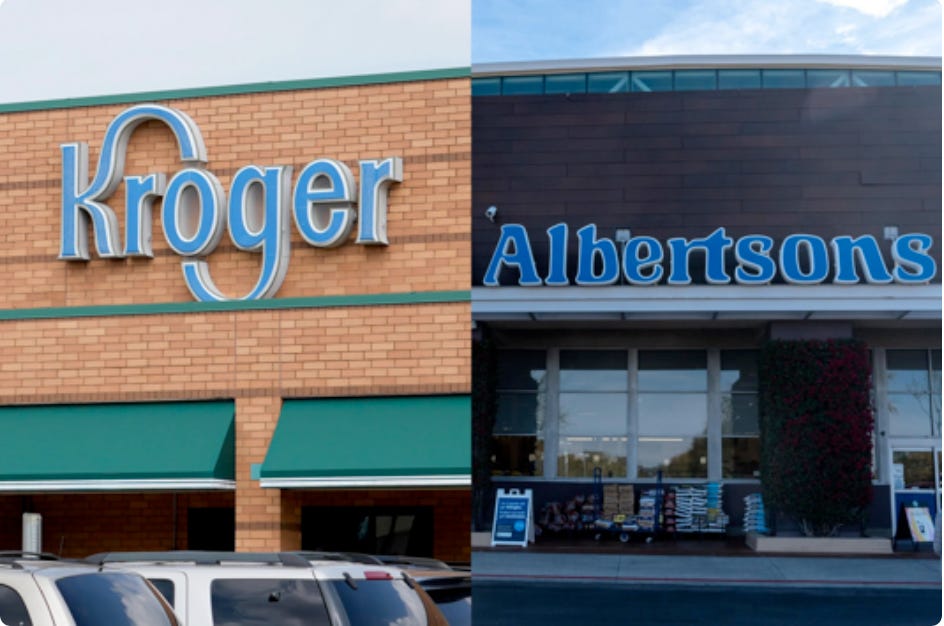Kroger-Albertsons Merger Federal Case Closes in Oregon, Verdict Likely Unfavorable For Grocers
Workers still nervous that the industry is facing another wave of consolidation and cutbacks that threaten their livelihoods, job security and being thrown into unemployment and poverty.
The lawsuit in federal court in Portland, Oregon brought by the FTC and several states to stop the Kroger-Albertsons merger closed on September 17 and grocery market analysts weighed in, mostly concluding it does not look promising for the grocers.
Both Eric Fruits, senior scholar at the International Center for Law & Economics, and David Balto, an antitrust lawyer who served as the policy director of the Bureau of Competition for the FTC between 1998 and 2001, told Supermarket News that they believe an injunction on the $24.6 billion merger will likely be issued by the judge.
“I thought the FTC made a compelling case and the evidence I think is overwhelming that these firms [Kroger and Albertsons] are very substantial competitors and competition benefits consumers,” Balto told Supermarket News. “Probably the strongest part of the FTC’s case is the whole question of whether or not C&S somehow could replace that [Kroger-Albertsons] rivalry. In that respect, [the defendants’] case fell remarkably short,” Balto said.
The Kroger, Albertsons merger divestiture will affect 579 stores, which will be bought by C&S Wholesale Grocers.

The trial focused on the definition of competition. The FTC used a number of different examples but centered its argument on big-box retailers that have thousands of SKUs under one roof and are considered one-stop shops. That would eliminate smaller stores like Aldi, Trader Joe’s, and dollar stores from the smaller competitive group.
The FTC used Albuquerque, New Mexico, as an example on how the merger could wipe out grocery competition in one area, Fruits told Supermarket News.
“Kroger and Albertsons would have a pretty substantial share of that market, and [the FTC] hammered on that a few times,” he said.
In Washington state, where Attorney General Bob Ferguson went to trial to block the deal in September, half of all grocery sales flow through one of the two chains, and 124 stores are slated to shift to C&S if the merger proceeds.
In addition to arguing the merger will raise prices and diminish choices for shoppers, Ferguson has argued it will make it easier for Kroger to close stores where workers are unionized and reopen them as non-union.
Workers at stores across the country are feeling powerless. Carol McMillian, a 63-year-old cashier at a Kroger-owned King Soopers in Aurora, Colorado told the Cincinnati Enquirer that “When I was growing up, (these) type of jobs people considered career jobs … the type of job most people kept until they retired. You knew this was a job you could raise your family on. You could buy a house. Send your child to college … you had opportunity.”
Workers must form their own rank and file committees separate from the United Food and Commercial Workers (UFCW) union, which has done nothing to fight against the merger other than stage photo opps for media outlets. Only the rank and file can take the power away from the grocery giants who weild power over the food supply, a commodity so critical to the whole society, that it should not be left in the control of oligarchs.


